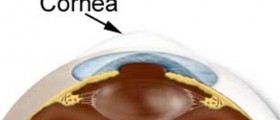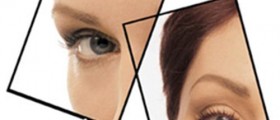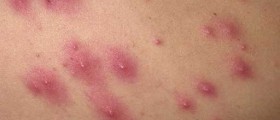
Herpes eye infection is an eye disease caused by the virus called herpes simplex virus. This infection is usually not dangerous and represents only a mild medical problem, however, it can also become severe and even lead to complete blindness.
Types of herpes simplex virus
There are two basic types of herpes simplex virus or HPV- HPV type 1 and HPV type 2. HPV-1 usually causes cold sores and ocular herpes, while HPV-2 mostly causes genital herpes, although there are cases in which cold sores and ocular herpes were caused by the type 2 virus.
Many people carry the virus in their bodies in an inactive or dormant state. Sometimes the virus activates and causes cold sores. It can also penetrate the eye and cause the infection there. Reasons that cause the activation of the virus range from emotional or physical stress, changes of climate and mild drops in the immune response, to more serious medical conditions.
Symptoms of herpes eye infection
The symptoms of herpes eye infection, which indicate the reactivation of the symptom, can occur years after the first contact with the virus, just as it happens with cold sores. The symptoms usually start at one eye but sometimes they spread to the other as well.
Common symptoms of herpes eye infection include redness of the eye, irritation, watery eyes, blurred vision, soreness and pain, cloudy cornea, itching, swelling and sensitivity to light.
Diagnosis and treatment for herpes eye infection
In order to diagnose herpes eye infection it is necessary to inspect the eye thoroughly with a magnifying glass or a similar device. Cornea of the eye infected with HPV usually has tiny ulcers or scars on it. Additional tests to confirm the presence of the virus and to exclude other causes are also possible. It is also important to determine whether the infection is localized and superficial or it has spread to the inner layers of the cornea.
HPV cannot be killed or eliminated completely from the body. The treatment aims to reduce the number of organisms and to prevent them from multiplying even more. For superficial infections the treatment usually consists of eye drops and sometimes oral medications that control the virus. If the infection has spread to the inner layers of the cornea, steroid drops could be necessary.
The problem with herpes eye infections is that they keep coming back even after they clear. They can reoccur weeks or years after the first outbreak. Frequent recurring infections of the eye can be detrimental for the sight.

















Your thoughts on this
Loading...